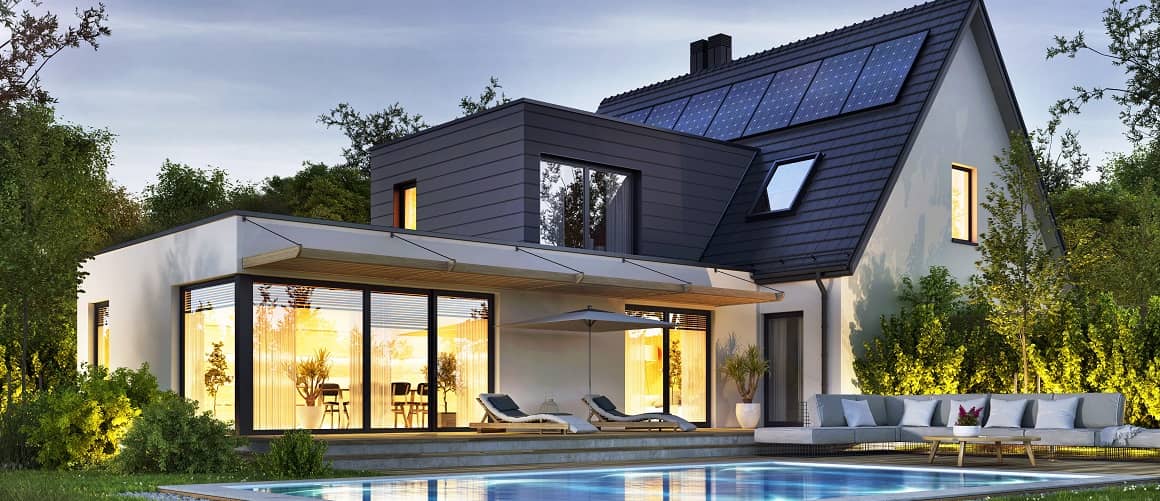Abuja, Nigeria’s capital city, offers a unique living experience for remote workers. The city is known for its planned layout and relatively peaceful environment compared to other big cities in Nigeria. You will find Abuja’s general living conditions comfortable because it has cleaner streets, better security, and less traffic congestion in some areas. However, like many growing cities, Abuja faces challenges such as rising rent prices and a shortage of affordable housing, especially in the city center and popular neighborhoods.
One big advantage of Abuja for remote workers is its infrastructure. The city has better roads and transport links than many other parts of Nigeria, making it easier to move around. The government is also working on expanding satellite towns around Abuja, like Kubwa, Lugbe, and Kuje, where housing is more affordable and infrastructure is improving. This expansion helps reduce pressure on the city center and offers remote workers more housing options within reach of the city.
Connectivity is another strong point. Abuja generally has good internet access compared to many other Nigerian cities, which is essential for remote work. While power supply can sometimes be a challenge, many residents use generators or solar power to ensure they stay connected throughout the day. The climate in Abuja is also favorable for living and working remotely. It has a tropical savanna climate with a dry season that is comfortable and a rainy season that keeps the environment green and fresh. In this informative write-up, we will open your eyes to affordable places you can live as a remote worker in or around Abuja.
Criteria for affordability and suitability for remote workers
Check below for some important things to consider to make sure your home supports both your work and lifestyle comfortably.
Cost of rent and utilities
First, the rent should fit your budget. Abuja has different neighborhoods with varying rental prices, so look for areas where you can find a decent apartment without paying too much. Also, don’t forget to consider utility costs like electricity, water, and internet. Sometimes a cheaper rent might come with higher utility bills, especially if you need to run a generator often due to power outages.
Availability of reliable internet and power supply
As a remote worker, having a steady internet connection is a must. Check if the area has good internet service providers and stable network coverage. Power supply is also critical because frequent blackouts can disrupt your work. Areas with reliable electricity or where it is easy to set up a backup generator are better choices.
Safety and security
Feeling safe in your neighborhood is very important. Look for places with good security measures like gated communities or areas known for being peaceful and secure. Avoid places with high crime rates or where security is a concern, as this can affect your peace of mind and productivity.
Access to amenities (markets, healthcare, leisure)
Living close to markets, shops, and healthcare centers makes life easier. You want to be able to buy groceries, get medical help if needed, and enjoy some leisure activities without traveling far. This balance helps you maintain a good quality of life while working remotely.
Proximity to co-working spaces or business hubs
Sometimes, working from home is not enough, and you may want to visit a co-working space or meet clients. Living near these hubs or business districts in Abuja can save you time and transport costs. It also gives you the option to network and attend events when needed.
Detailed profiles of affordable neighborhoods in Abuja
Check below for detailed profiles of affordable neighborhoods in Abuja. We have also highlighted their main features:
- Kubwa: This large suburban district within the Bwari Area Council is known for its affordability and community vibe. It offers a mix of housing options, from affordable flats to detached homes, and is popular among families and young professionals. Kubwa has extensive amenities, including schools, hospitals, shopping centers, and recreational facilities. It’s well-connected to the city center and other areas via the Abuja-Kubwa Expressway and the Abuja Light Rail, though it can experience traffic congestion, especially during peak hours.
- Lugbe: Lugbe offers affordable housing options and proximity to the city center. Its strategic location provides easy access to Abuja’s commercial and administrative hubs. The area features budget-friendly apartments and estates, many of which offer added security.
- Nyanya, Ado, Masaka, Kuruduma: These areas are known for budget-friendly housing and their proximity to Abuja.
- Mpape: Mpape is noted for its rapid development, affordability, and vibrant community.
- Apo Resettlement: It is located within the Abuja Municipal Area Council (AMAC), and is known for its accessibility and affordable housing. It is a short drive from the central business district, making it convenient for commuting. Housing options range from apartments to detached houses, catering to various budgets. While Apo has good infrastructure, including well-paved roads and access to essential amenities, it can suffer from traffic congestion and overcrowding.
- Karu: Karu’s affordability and location bordering Nasarawa make it suitable for remote workers.
- Gwagwalada: Gwagwalada is considered student-friendly and family-oriented, with expanding infrastructure.
- Galadimawa: This growing residential hub offers access to key roads and a variety of housing options in secure estates.
- Kuje: Kuje is known for its quiet environment and the cheapest rents, though it has a longer commute to the city center.
- Dawaki: Dawaki is a calm area with decent road links and competitive rents.
Comparative analysis of rent prices and housing types
When looking for affordable places to live around Abuja as a remote worker, you need to first understand rent prices and housing options. We will improve your understanding in this section.
Typical rent ranges for apartments and duplexes
For 1-bedroom apartments, especially self-contained ones, rent can start from around ₦100,000 to ₦200,000 per month in affordable areas. Serviced 1-bedroom apartments with amenities may cost a bit more but offer convenience like reliable power and internet.
2-bedroom apartments generally range from ₦150,000 to ₦400,000 monthly depending on location and facilities. Some serviced 2-bedroom apartments in areas like Maitama or Life Camp come with extras like gym access, housekeeping, and 24/7 power supply.
3-bedroom apartments and duplexes tend to start around ₦300,000 and can go higher for fully serviced or luxury units. These larger homes are suitable for those needing more space or family living, often found in secure estates with good amenities.
Self-contained apartments vs. larger homes
Self-contained apartments (usually 1-bedroom) are ideal for single remote workers or couples who want privacy and lower rent. They are easier to maintain and often located near business districts or city centers for convenience.
Larger homes like 2- or 3-bedroom apartments and duplexes offer more space for families or roommates. They can have multiple bathrooms, bigger living areas, and sometimes outdoor space. However, they come with higher rent and utility costs.
Availability of serviced apartments and short-term rentals
Abuja has a growing number of serviced apartments designed for remote workers and business travelers. These come fully furnished with workspaces, high-speed internet, uninterrupted power supply, and cleaning services. Popular areas include Wuse 2, Maitama, and Life Camp.
Short-term rentals are also available, often through platforms like Airbnb or local agencies. These are great for remote workers who want flexibility or are new to Abuja. Many offer amenities like gyms, laundry, and entertainment subscriptions, making them feel like a home away from home.
Infrastructure and connectivity considerations
Good internet is essential for remote work. Many affordable neighborhoods in Abuja have access to reliable internet service, but quality can vary. It is a good idea to check with local providers about the availability of fiber optic or 4G/5G networks in the area you are considering. Some suburbs and estates have better connectivity due to recent infrastructure investments, while others may rely on slower or less stable connections.
Power supply reliability and backup options
Electricity supply in Abuja can be unpredictable, especially in more affordable areas. However, some neighborhoods like Apo, Gwarinpa, Kubwa, and Katampe have relatively steady power supply compared to others. Even in these areas, power outages can happen, so having a backup option such as a generator or solar power system is advisable to avoid disruptions during work hours. Many residents invest in inverters or solar panels to ensure continuous power for their devices.
Road networks and transportation
Good road access and transportation options are important for commuting, running errands, or meeting clients if needed. Affordable neighborhoods like Kubwa and Gwarinpa are connected by major roads such as the Murtala Mohammed Expressway, making travel easier. Public transport options like buses and shared taxis are available, but traffic congestion can be an issue during peak hours. It’s helpful to live near main roads or transport hubs to reduce commute times and improve convenience.
Lifestyle and community aspects
Affordable neighborhoods like Apo Resettlement, Lugbe, Kuje, Kubwa, and Gwagwalada have friendly and vibrant communities. For example, Apo Resettlement is lively and close to the city center, attracting many residents who enjoy a busy, social atmosphere with easy access to markets and businesses. Kuje and Gwagwalada offer a quieter, more peaceful vibe, ideal for those who prefer calm surroundings and a strong sense of community. These areas often have a mix of families, students, and working professionals, creating a diverse social environment where you can easily connect with neighbors.
Availability of recreational facilities, parks, and relaxation spots
While some affordable areas may not have as many high-end recreational facilities as the city center, there are still good options nearby. Abuja is home to beautiful parks like Millennium Park in Maitama, Tobix Recreational Park, and BMT African Garden, which provide green spaces for relaxation, exercise, and social gatherings. Though these parks are closer to more upscale neighborhoods, residents of affordable areas can access them with a short drive. Within the neighborhoods themselves, you can often find local markets, small playgrounds, and community centers that offer places to unwind and meet others.
Security situation and neighborhood safety
Security is a key concern in any neighborhood. Affordable areas like Apo Resettlement and Lugbe generally have reasonable safety levels but may experience petty crimes or traffic congestion due to their popularity and population density. More rural or suburban areas such as Kuje, Gwagwalada, and Bwari tend to be quieter and have a lower crime rate, offering a safer environment for families and individuals. However, some informal settlements around Abuja face challenges with under-policing and security gaps, so it’s important to choose neighborhoods with active community policing and good local security measures. Overall, many affordable neighborhoods maintain a balance between cost and safety, making them suitable for remote workers seeking peace of mind.
Access to co-working spaces and remote work facilities
If you are a remote worker living in or around Abuja, you will find several co-working spaces that offer great environments to work productively outside your home. These spaces are designed to provide comfort, good internet, and opportunities to meet other professionals.
Locations and features of co-working spaces in Abuja
- Novare Shared Office in Wuse 2 offers spacious desks, meeting rooms, high-speed Wi-Fi, parking, and dining options. It’s a good place if you want a professional setting with community vibes.
- The BUNKER, also in Wuse, is a work cafe and coworking facility with meeting rooms, video conferencing tools, and reliable internet. It’s perfect for freelancers and small teams who want a mix of work and social interaction.
- Ventures Park HQ in Maitama provides coworking spaces, private offices, and virtual office options. It’s a creative hub for entrepreneurs and freelancers looking to network and collaborate.
- Work and Connect Abuja in Jabi supports youth-led businesses with ergonomic furniture, IT facilities, and a hybrid workspace model. It suits those who want a productive and supportive environment.
- CubeHub in Jabi offers virtual offices and coworking spaces with high-speed internet and business services, ideal for startups and remote workers needing a professional base.
- Work Fusecoworking provides flexible packages with amenities like Wi-Fi, air conditioning, showers, meditation rooms, and event spaces. It is centrally located and designed to meet different business needs.
Other options include GarageHub in Karu, Büronetz with solar-powered electricity, and premium coworking spaces at WTC Abuja offering 24/7 access and luxury facilities.
Availability of cafes and public spaces with good Wi-Fi
Besides formal coworking spaces, Abuja has several cafes and public places where you can work remotely with good Wi-Fi. Many work cafes like theBUNKER double as coworking spots, offering a relaxed atmosphere with reliable internet and refreshments. Some malls and restaurants in central areas such as Wuse and Jabi also provide free Wi-Fi, making them convenient for remote work when you want a change of scenery.
Challenges and considerations for remote workers living affordably in Abuja
Even though you work remotely, you might still need to go out for errands, meetings, or social activities. Some affordable neighborhoods are located far from the city center, where most offices and services are. These areas often face heavy traffic congestion, especially during morning and evening rush hours. For example, routes like Nyanya-Mararaba, Kubwa express-way, and Airport Road are known for long traffic jams that can make even short trips take much longer than expected. This means you could spend a lot of time stuck in traffic, which can be tiring and reduce your productivity.
Infrastructure gaps in affordable neighborhoods
Many cheaper areas around Abuja may not have all the infrastructure you need for a comfortable life. This can include unreliable electricity, poor internet connectivity, and limited access to clean water or good roads. These gaps can make working from home difficult, especially if your job depends on stable power and fast internet. Some affordable neighborhoods are still developing, so you might have to deal with occasional disruptions or lower quality services.
Balancing cost savings with convenience and quality of life
Choosing a low-cost place to live is good for saving money, but it’s important to balance this with convenience and your overall quality of life. Living very far from the city center might save rent costs but increase your transport expenses and time spent commuting. Also, if the area lacks basic amenities or good security, it can affect your comfort and peace of mind. As a remote worker, having a quiet, safe, and well-connected environment is important for focus and well-being. Sometimes paying a bit more for a better location or better infrastructure can improve your work-life balance significantly.
Tips for finding and securing affordable housing in Abuja
How to negotiate rent and terms
Before you agree to any rent, do your homework. Check the average rent prices for similar properties in the area you want to live. For example, if 3-bedroom apartments in Wuse go for about ₦2 million per year but the landlord is asking for ₦2.5 million, you can politely present this information and ask for a fairer price. Also, don’t hesitate to negotiate other fees like security deposits, agency fees, or advance payments. You might ask for a lower security deposit if you commit to a longer lease or offer to pay several months upfront in exchange for a discount. Be ready to walk away if the deal doesn’t fit your budget because there are many options in Abuja.
Using online platforms and local agents
Use online real estate platforms like BuyLetLive or ListProperty.ng to browse verified listings and compare prices. These platforms let you filter by price, location, and amenities, making it easier to find affordable options. Additionally, local real estate agents can be helpful, but remember they earn commissions and may push higher rents. When dealing with agents, be clear about your budget and show that you are a reliable tenant with steady income and good references. This can encourage them to help you find better deals. Always cross-check listings from agents with online platforms to avoid overpaying.
Understanding lease agreements and tenant rights
Before signing any lease, read the agreement carefully. Pay attention to rent increase clauses, maintenance responsibilities, and rules about subletting or making changes to the property. Ask for flexibility on terms that don’t suit you, like penalties for late payments or restrictions on renovations. Make sure the lease clearly states what the service charges cover and who handles repairs. Knowing your tenant rights in Nigeria can protect you from unfair terms, so don’t hesitate to ask questions or seek advice if something is unclear.
Future trends and developments affecting affordable living in Abuja
Upcoming infrastructure projects
The Federal Capital Territory (FCT) government has approved numerous infrastructure projects aimed at improving Abuja’s roads, transportation, and public facilities. These include upgrading streetlights along major expressways, constructing new magistrate courts, building bus terminals in Mabushi and Kugbo, and developing arterial roads linking key districts like Wuye, Kuje, and Gwagwalada. Also underway are erosion control measures and sewage infrastructure improvements.
Such projects will enhance mobility and accessibility, making it easier to live in areas that were previously less connected. For remote workers, this means more options for affordable housing in neighborhoods that will soon have better road networks and public transport links.
Real estate market trends impacting rent and availability
With these infrastructure upgrades, demand for housing in well-connected neighborhoods is likely to increase. This can lead to rising rents in already popular areas. However, the government’s focus on improving satellite towns and outer districts like Kuje, Gwagwalada, and Mabushi suggests that new affordable housing opportunities will emerge there.
Moreover, ongoing road projects such as the Abuja-Lokoja-Benin Road dualization and the construction of new access roads to estates will open up land for residential development. This could help balance the market by increasing housing supply in less congested, more affordable locations.
Potential new neighborhoods emerging as affordable options
As infrastructure improves, some neighborhoods on the outskirts of Abuja are becoming attractive for affordable living. Areas like Mabushi, Kuje, Gwagwalada, and Durumi are seeing road upgrades and new service facilities that will enhance their livability. The construction of new bus terminals and improved road access will reduce commute times and transportation costs, key factors for remote workers seeking budget-friendly housing.
Additionally, new estate projects with dedicated access roads, such as the Renewed Hope Cities and Estate Project in Kasana West District, are set to provide modern, affordable residential options. These emerging neighborhoods offer a good balance between cost and convenience, especially as Abuja’s core areas become more expensive.
Conclusion
The information above has proved Abuja to be one of the best places for you as a remote worker. Abuja is a federal capital territory but still one of the most affordable cities in Nigeria. In fact, living in Abuja can be more affordable than Lagos since rent tends to be a lot more affordable here. The issue of traffic also comes up in Abuja as is the case with Lagos, but it is not as much as Lagos. You can equally find several co-working places in Abuja where you can enjoy consistent power supply as you work remotely. You will be required to pay for the services, but the value you get will be higher than what you pay. If you are a remote worker looking for a good place to relocate, consider Abuja and you will not regret it.




